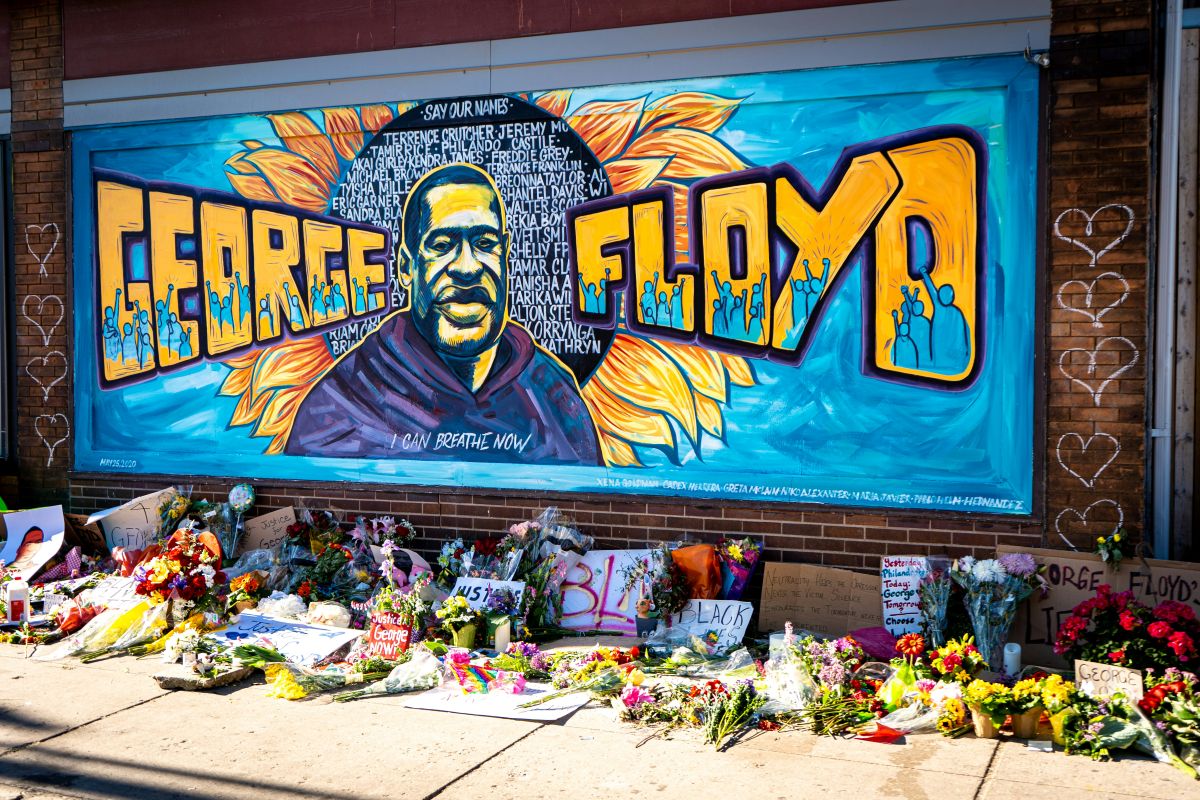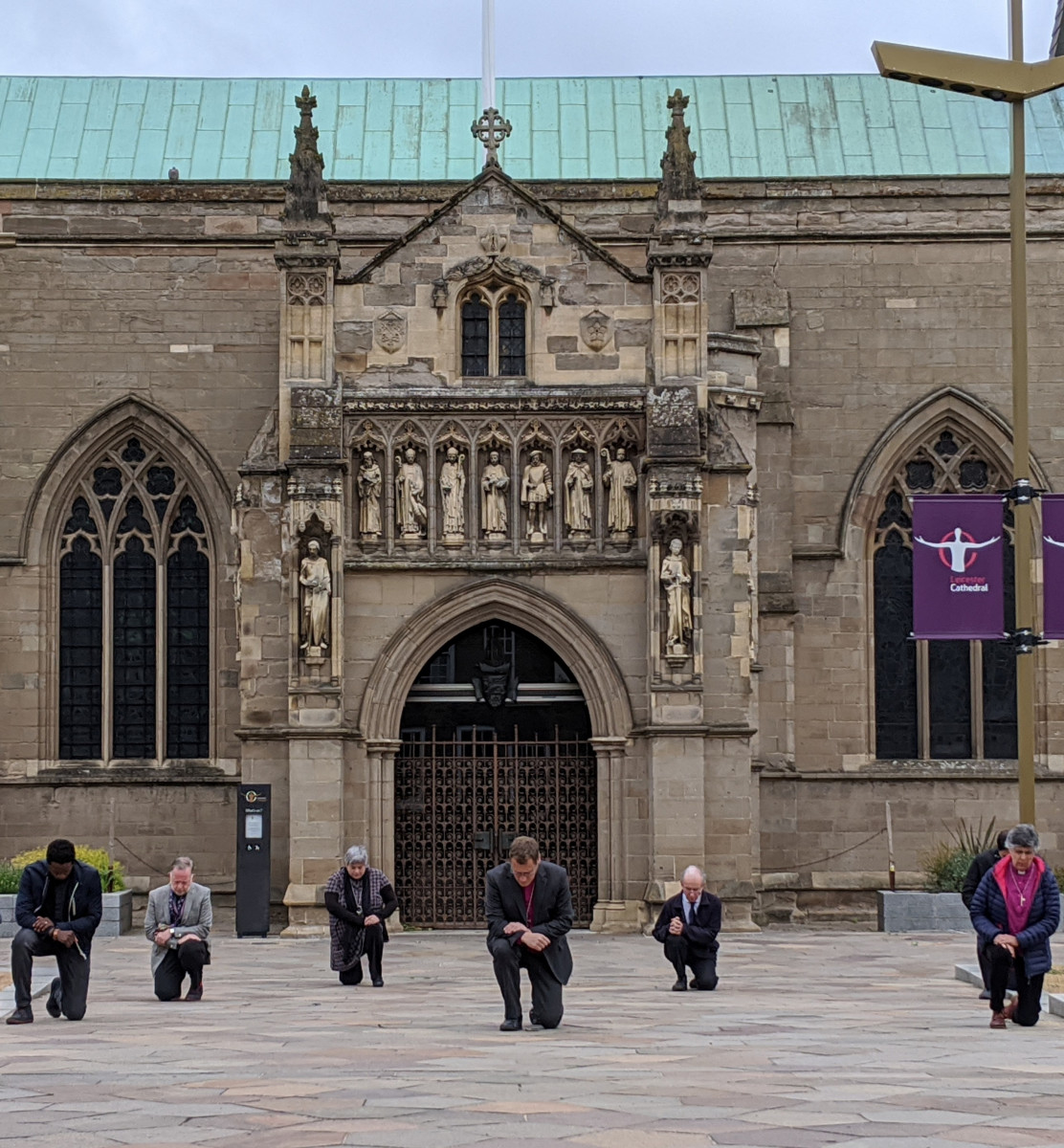Our Director of Racial Equity, Sophie Holder, shares her reflections as we mark the fifth anniversary of the death of George Floyd...
On 25 May 2025, it was five years since the murder of George Floyd – an event that shook the world.
That is not meant to be a contentious or exaggerated statement. Instead, let us cast our minds back to May 2020, a time unparalleled to what many of us have ever known in our lives.
The UK had been in a nationwide lockdown for two months; schools were closed and many people had either not seen or lost loved ones in an unprecedented pandemic that left millions of people uncertain about the future.
It was because most of the world was home - indulging in more screen time than even the most technologically addicted among us would decry - that we saw a Black man, George Perry Floyd Jr, being held down to the point of death in Minneapolis, USA.
While his death became a symbol of a larger issue, it is important to remember that he was a man. George had a daughter named Gianna, he wanted to be a musician as a child, he suffered from addiction and depression but persevered without receiving treatment and, while he did have trouble with the law for many years, was a respected person in his local community.
We did not have to be Christian (or Black) to be horrified by the actions of the police or to empathise with a man who had been dehumanised beyond belief on that fateful day. In those 9 minutes and 29 seconds where George was held down and killed, not only was a life lost but something irrevocably shifted for many of us.
Thousands of marches took place in North America, as well as every major city of the world. People of all backgrounds, classes and ethnicities were denouncing and protesting police brutality, but also the primary perpetrator - racial injustice. In a way that has never been seen before, the world’s eye was finally focused on racism - a system and reality constructed centuries ago but still upheld across the modern world and which continues to affect millions of people.
If I were to describe racism, it would be a hierarchal set of formal and informal rules, based on the depth and perception of skin colour, that has and continues to dictate who should be treated as worthy and unworthy, accepted or discriminated against, equal or subject to inequality across systems, institutions and throughout society.
Five years ago, not only were people finally talking about race and racism, but we also witnessed a reckoning for many institutions and organisations who had perpetuated harm to Black individuals physically, emotionally, financially – whether consciously or unconsciously.
The Church of England was not exempt from this evaluation, as our history and treatment of Black congregants and staff was spotlighted and the facts and statistics were startling.
In June 2020, Church Times reported that there were “no black, Asian, or minority-ethnic (BAME) diocesan bishop serving the Church of England. The latest ministry statistics…[at the time showed] that just 3.9 per cent of the 7700 clergy in the C of E are from BAME backgrounds…[and] of the 330 ordinands beginning training in 2018, 7.9 per cent identified as BAME. (churchtimes.co.uk)
These statistics are not shared for the purpose of shame, but it is only when we are willing to face the truth, even when painful, that the process of lament, repentance and reform can begin.
Since 2020, the national church has published various reports, including From Lament to Action, Behind the Stained-Glass and The Archbishops’ Commission for Racial Justice, which have helped us to understand where we have frequently fallen short regarding people of racialised backgrounds.
The founding of the Racial Justice Unit (RJU), created by the Archbishops' Council, was also a momentous step and as a body they have a remit to support and fund racial justice work at all levels of the church. These actions and changes continue to show us how to carve a better path and experience for all God’s children.
 In our own Diocese of Leicester, the Rt Revd Martyn Snow, Bishop of Leicester, has long led the charge for change against racism, having led a General Synod vote for an amendment to apologise for racism within the Church of England in February 2020.
In our own Diocese of Leicester, the Rt Revd Martyn Snow, Bishop of Leicester, has long led the charge for change against racism, having led a General Synod vote for an amendment to apologise for racism within the Church of England in February 2020.
Since George Floyd’s death, the diocese has further committed to the work of racial justice by creating a Racial Equity Strategy and Policy, establishing a Racial Equity Unit (REU) and proposing and receiving funding for two roles that address cultural and racial difference in the diocese.
Jessie Tang has worked as the Intercultural Ministry Director for the last few years, and in late 2024, I joined the diocese as Director of Racial Equity. My role is to work on the implementation of the Racial Equity Strategy, to ensure our processes, parishes and opportunities are fair, equitable and without bias.
The work of racial justice will be ongoing and, as we enter this new phase of implementation, I hope and ask that we as a diocese will embark on it with patience, a conscientious spirit and an attitude of collaboration. This isn’t a work that seeks to attack individuals, but rather educate and empower all our diocesan staff and spaces to reflect the full, diverse kingdom of God as described in Revelation 7:9, where John beheld “a multitude too large to count, from every nation and tribe and people and tongue, standing before the throne and before the Lamb.”
We were all created equal and the differences and inequalities faced do not affect our worth in the sight of our Heavenly Father. However, they often affect the opportunities we are provided to fulfil His purpose in our churches, lives and society.
Therefore, my deepest wish in 2025 - as we see countries, organisations and institutions renege on the racial justice initiatives they committed to in 2020 - is that we as a diocese will “not become weary in doing good, for at the proper time we will reap a harvest if we do not give up,” (Galatians 6:9). The harvest we seek is to do the work of our Father, by making “disciples of all nations” (Matthew 28:19) and removing any barrier that would separate us from the love, fellowship and work of His church.
 Sophie Holder
Sophie Holder
In my role as Director of Racial Equity, I am excited to meet the many schools, people and parishes that make up our diocese. If you would like to arrange a visit, so we can talk further about racial equity, please contact me at Sophie.Holder@LeicesterCofE.org
Related stories:
Bishops Take The Knee
The Bishops of Leicester and Loughborough 'Took The Knee' outside Leicester Cathedral to mark two weeks since George Floyd's death and highlight injustice in our own society.
What do YOU see?
Revd Lusa Ngoy our previous diocesan BAME enabler and lead on Intercultural Worshipping Communities wrote this powerful poem as a personal response to the tragic killing of George Floyd.